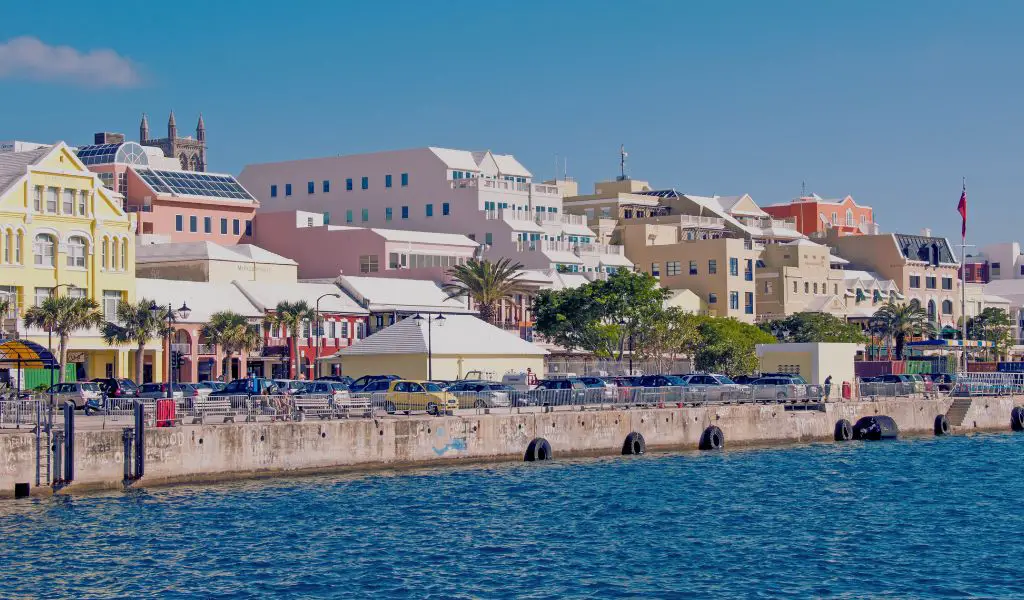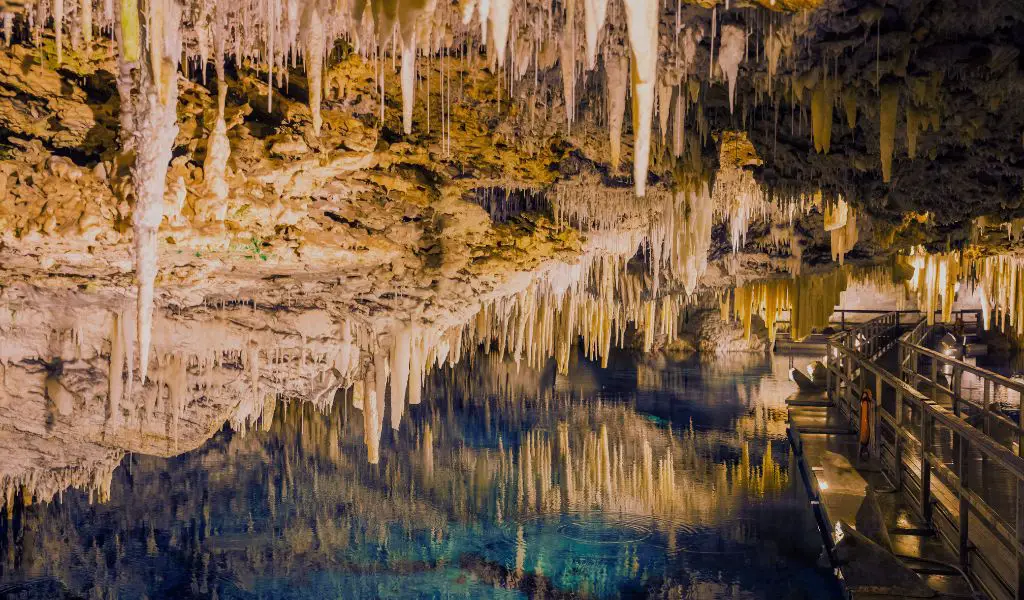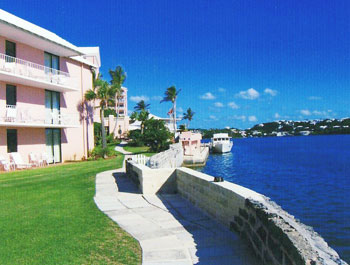Bermuda: A Jewel in the Atlantic
Related Articles: Bermuda: A Jewel in the Atlantic
Introduction
With great pleasure, we will explore the intriguing topic related to Bermuda: A Jewel in the Atlantic. Let’s weave interesting information and offer fresh perspectives to the readers.
Table of Content
Bermuda: A Jewel in the Atlantic

Bermuda, a self-governing British Overseas Territory, is an archipelago of over 100 islands and islets nestled in the North Atlantic Ocean. Located approximately 650 miles (1,050 kilometers) east of North Carolina, USA, Bermuda’s strategic location has played a crucial role in its history and continues to be a factor in its modern-day significance.
Geographic Positioning and Characteristics
Bermuda’s unique geographic position is defined by its status as a volcanic archipelago. Formed by the remnants of an extinct underwater volcano, the islands rise from the ocean floor, creating a distinct and captivating landscape. The archipelago’s most prominent feature is its main island, which is roughly 21 square miles (54 square kilometers) in size and is home to the majority of the territory’s population.
The islands are characterized by their distinctive pink-hued beaches, a result of crushed coral and calcium carbonate. Bermuda’s climate is subtropical, with warm, humid summers and mild, breezy winters. Its location outside the hurricane belt offers a relatively stable climate year-round, attracting visitors seeking a tranquil escape.
Historical Significance
Bermuda’s history is rich and intertwined with exploration, colonization, and strategic importance. Discovered in 1503 by the Portuguese explorer João Vaz Corte-Real, the islands were initially uninhabited. However, they soon became a critical stopover point for European ships traversing the Atlantic. In 1609, a group of English colonists, led by Sir George Somers, were shipwrecked on Bermuda’s shores. This event, immortalized in Shakespeare’s play "The Tempest," marked the beginning of sustained European settlement.
Over the centuries, Bermuda played a significant role in maritime trade and military strategy. Its strategic location made it a vital base for naval operations, particularly during the American Civil War and World Wars I and II. The presence of numerous forts and fortifications throughout the islands is a testament to Bermuda’s historical importance as a military stronghold.
Modern-Day Importance and Benefits
Today, Bermuda’s strategic location continues to be a key factor in its economic success. The islands are a major financial center, attracting international businesses and investors. The territory’s stable political environment, low taxes, and strong regulatory framework make it an attractive destination for offshore banking and insurance.
Tourism also plays a vital role in Bermuda’s economy. The islands are renowned for their pristine beaches, crystal-clear waters, and luxurious resorts. Golf, sailing, and fishing are popular activities, while the vibrant culture and historical sites offer further attractions.
Furthermore, Bermuda’s location positions it as a key hub for transportation and logistics. The territory’s international airport serves as a gateway to the Caribbean and North America, while its deep-water port facilitates trade and maritime activities.
FAQs about Bermuda’s Location:
Q: Is Bermuda considered part of North America?
A: While geographically located in the North Atlantic Ocean, Bermuda is a British Overseas Territory and is not considered part of North America.
Q: How far is Bermuda from the mainland United States?
A: Bermuda is approximately 650 miles (1,050 kilometers) east of North Carolina, USA.
Q: Why is Bermuda considered a strategic location?
A: Bermuda’s strategic location has historically made it a vital base for naval operations and trade routes. Its location in the North Atlantic, close to major shipping lanes and North America, continues to be of strategic importance today.
Tips for Visiting Bermuda:
1. Plan your trip in advance: Bermuda is a popular tourist destination, so booking accommodations and flights in advance is recommended, especially during peak season.
2. Pack for warm weather: Bermuda’s climate is subtropical, so light clothing and swimwear are essential. Remember to pack sunscreen, insect repellent, and a hat for sun protection.
3. Explore the island’s history: Bermuda has a rich history, and exploring its forts, museums, and historical sites is a rewarding experience.
4. Enjoy the beaches: Bermuda is renowned for its beautiful beaches, so take the opportunity to relax, swim, and soak up the sun.
5. Try the local cuisine: Bermuda’s cuisine is a fusion of British, Caribbean, and American influences. Sample local dishes like fish chowder, conch fritters, and Bermuda onion soup.
Conclusion
Bermuda’s strategic location has shaped its history, culture, and economy. From its early days as a vital stopover point for European ships to its current status as a financial center and tourist destination, Bermuda’s position in the North Atlantic has played a crucial role in its development. Its unique blend of natural beauty, historical significance, and modern-day amenities continues to attract visitors and investors alike, making it a jewel in the Atlantic.








Closure
Thus, we hope this article has provided valuable insights into Bermuda: A Jewel in the Atlantic. We appreciate your attention to our article. See you in our next article!